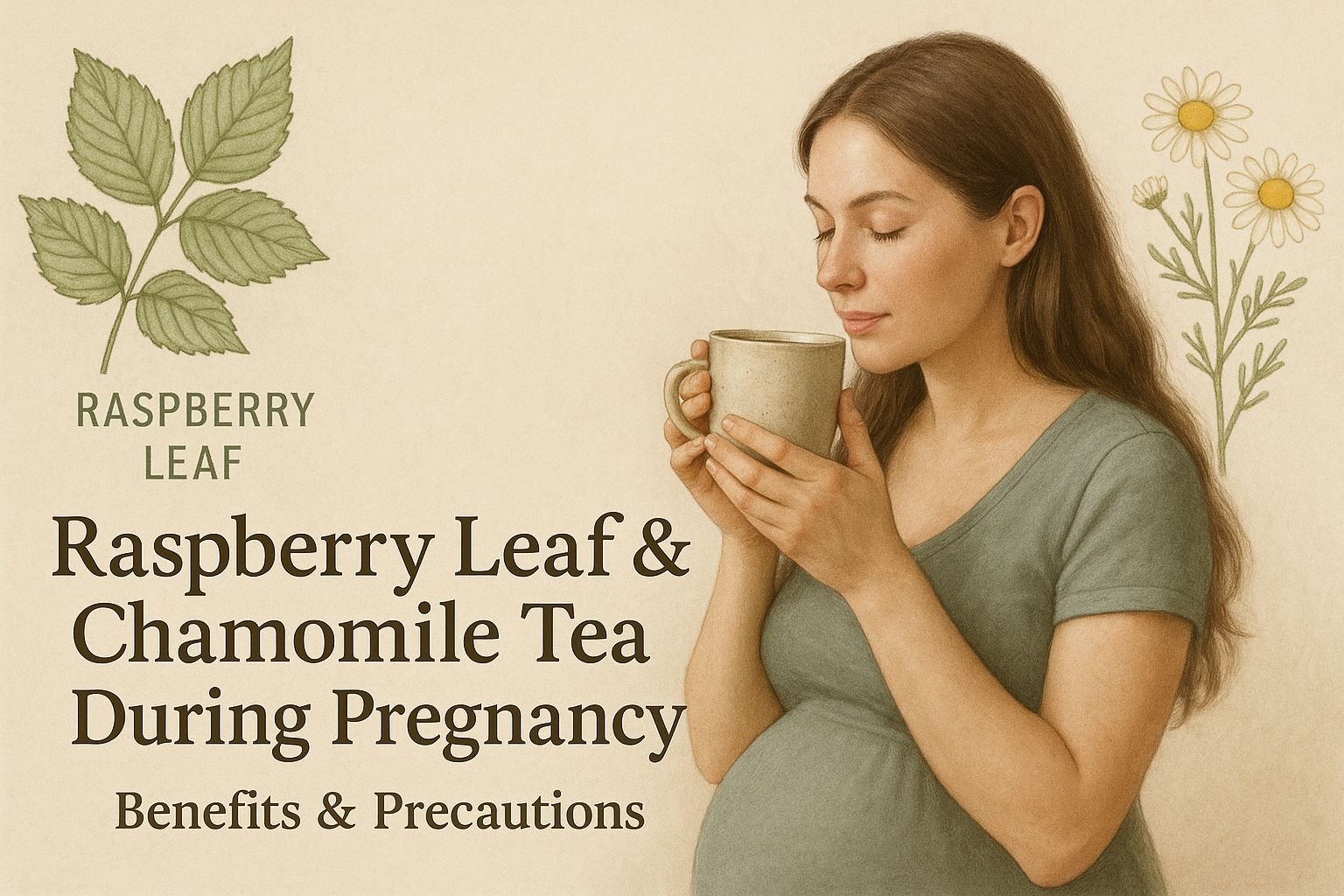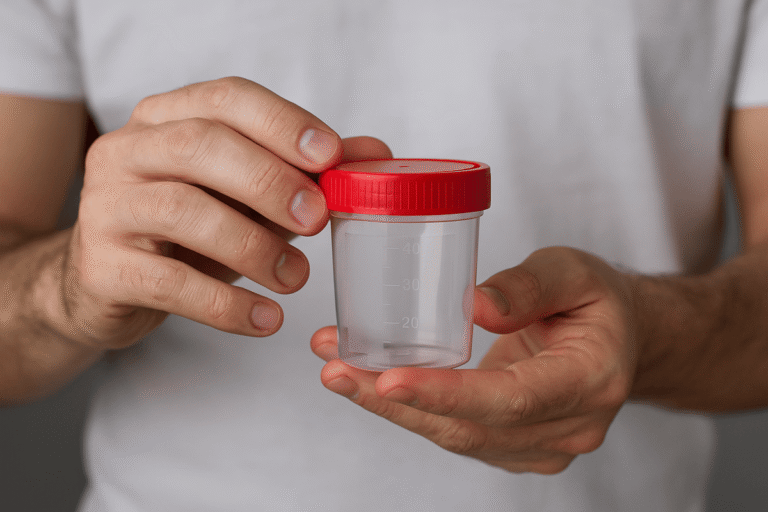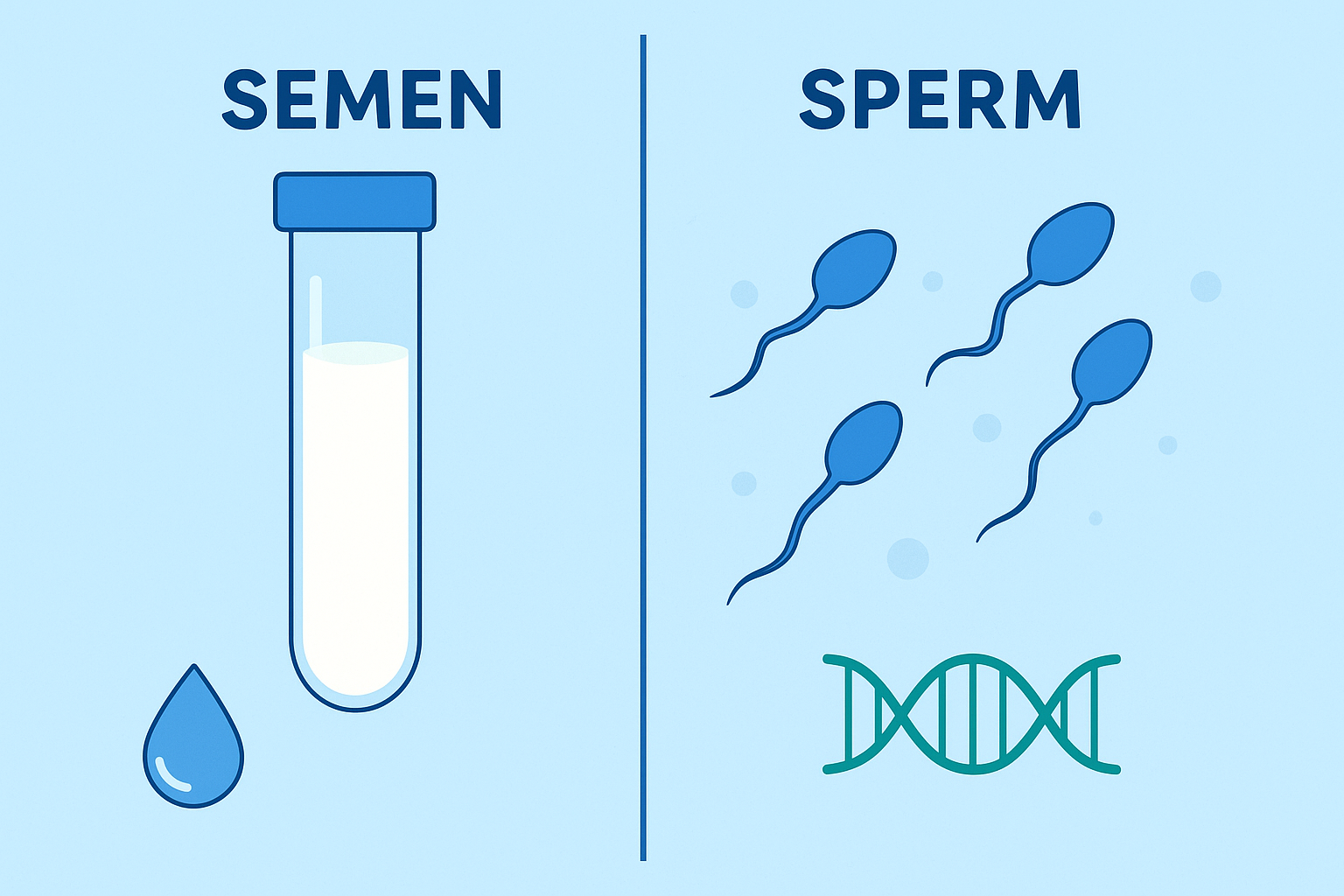Pregnancy is one of those life stages that come with a lot of advice. It feels like everyone has an opinion—whether it’s about what you should eat, how much sleep you need, or which herbs are safe to drink. Among the most common herbal teas mentioned are raspberry leaf tea and chamomile tea. Many people promote these teas for their health benefits, but when you’re pregnant, the situation becomes more complicated, right?
Both raspberry leaf and chamomile tea are popular for their soothing qualities, and they have long histories of use. However, when you’re carrying a baby, you can’t be too careful. The question is: Are these teas safe to drink during pregnancy? Can they have positive effects or, perhaps, unexpected consequences?
In this article, we’ll take a closer look at raspberry leaf tea and chamomile tea, exploring their benefits and potential risks during pregnancy. After all, a little extra knowledge can’t hurt, right?
Also read: Performance Anxiety: Top Proven Solutions for Male
Raspberry Leaf Tea: A Pregnancy Superhero or Something to Avoid?
Let’s start with raspberry leaf tea—one that often gets mentioned in pregnancy circles. Raspberry leaf has a rich history of being used by women to support their reproductive health. It’s said to tone the uterine muscles, helping them prepare for labor. This is a common belief, but is it really something you should embrace during pregnancy?
What Is Raspberry Leaf Tea?
Raspberry leaf comes from the leaves of the red raspberry plant (Rubus idaeus). The leaves contain an abundance of vitamins and minerals, including vitamin C, calcium, magnesium, and iron.. For centuries, it’s been used to help women regulate their menstrual cycles, improve fertility, and ease labor pains. But what about pregnancy?
Potential Benefits During Pregnancy
Raspberry leaf tea is most commonly associated with the second and third trimesters. Advocates claim it can help tone the uterine muscles, which may make contractions during labor more efficient. Some studies suggest that it may shorten the length of labor, although people debate these claims.
Many recommend raspberry leaf tea because it supports the body’s nutrient needs. Many pregnant women experience deficiencies in things like iron and calcium, and raspberry leaf could provide a bit of a boost. Some also believe it helps to reduce pregnancy-related symptoms like nausea and cramping.
But, Is It Safe?
Raspberry leaf tea is generally safe in moderation during the second and third trimesters, but uncertainty surrounds its use in the first trimester. In fact, some healthcare professionals advise against drinking raspberry leaf tea early in pregnancy, particularly before week 12, due to the potential for stimulating uterine contractions (which, theoretically, could increase the risk of miscarriage).
The problem is that raspberry leaf tea may act as a uterine tonic, meaning it could cause the muscles of the uterus to contract more, which, in rare cases, could potentially trigger early labor. For this reason, it’s important to be cautious. Many health professionals recommend waiting until the second trimester before introducing raspberry leaf tea into your routine.
Even then, it’s important not to overdose it. Drinking too much raspberry leaf tea during pregnancy could cause some side effects, like an upset stomach or diarrhea. So, like most things in pregnancy, moderation is key.
Also read: Can Semaglutide (Ozempic) Affect Birth Control? What You Need to Know
Chamomile Tea: The Soothing, Yet Mysterious Herb
Now, let’s talk about chamomile tea—a drink that’s known for helping with relaxation and sleep. Chamomile is a staple in many households as a go-to for winding down after a long day. But is it safe to sip on chamomile tea when you’re pregnant? Let’s dive into the details.
What Is Chamomile Tea?
It’s well-known for its calming properties, often used to soothe digestive issues, reduce anxiety, and promote restful sleep. It’s gentle, mild, and often considered safe—at least for most people. But pregnancy is a different story.
Potential Benefits During Pregnancy
Chamomile tea has some benefits for pregnant women, especially in terms of helping with the discomforts that often come with pregnancy, like anxiety or difficulty sleeping. For many expecting mothers, pregnancy can be a stressful time, and a cup of chamomile tea might just help calm those nerves. The mild sedative properties of chamomile can help you unwind at the end of a long day, potentially making it easier to fall asleep.
Chamomile helps alleviate digestive problems, including bloating, indigestion, and nausea.. Given that pregnancy hormones often cause burden on your digestive system, a cup of chamomile tea might help ease some of those uncomfortable symptoms. And, like raspberry leaf tea, chamomile has mild anti-inflammatory properties, which could also help alleviate pregnancy-related aches and pains.
But, Is It Safe?
While chamomile tea generally poses little risk in small amounts during pregnancy, you should keep a few important things in mind. There’s some evidence to suggest that chamomile can act as a mild uterine stimulant, especially when consumed in large quantities. This means that drinking excessive amounts of chamomile tea might increase the risk of early contractions or, in extreme cases, preterm labor. However, the research on this is not fully conclusive, and many experts agree that chamomile in moderation is safe.
But, and this is important, it’s worth noting that chamomile is related to plants like ragweed, daisies, and chrysanthemums. If you have an allergy to any of these plants, it’s best to avoid chamomile, as it could cause allergic reactions like hives, swelling, or difficulty breathing.
Chamomile is generally safe to consume in moderation, such as one cup per day. However, it’s wise to consult your healthcare provider before adding it to your daily routine to ensure safety.
Are These Teas Safe in the First Trimester?
The first trimester is a delicate time in pregnancy. It’s when the baby is developing rapidly, and anything you consume—be it food, drink, or supplements—could potentially affect the developing fetus. So, if you’re in your first trimester and you’re wondering if these herbal teas are safe, here’s what you need to know.
For raspberry leaf tea, the general advice is to avoid it during the first trimester. It’s a time when the risks of uterine stimulation outweigh the potential benefits. The body is already going through a lot of hormonal changes, and introducing a uterine tonic like raspberry leaf tea might not be the best idea early on.
When it comes to chamomile tea, it’s advisable to be cautious during the first trimester.. While a small cup here and there might not be harmful, chamomile does have mild uterine-stimulating properties, and the risks during the first trimester are not fully understood. Again, it’s a good idea to talk to your doctor or midwife before consuming it regularly.
Also read: What Are the Symptoms and Causes of High Cortisol Levels?
The Bottom Line: Moderation and Caution Are Key
When it comes to raspberry leaf and chamomile tea during pregnancy, moderation is crucial. Both teas have their potential benefits, but they also come with risks, especially in the first trimester. For raspberry leaf tea, stick to the second and third trimesters, and always consult your healthcare provider first. As for chamomile, it’s generally safe in small amounts, but be careful not to overdo it.
If you’re craving a cup of tea, there are plenty of other safe options to consider—like ginger or peppermint tea, which can help with nausea and digestion without the same level of concern. Ultimately, the best course of action is to have an open conversation with your healthcare provider to make sure you’re making the best decisions for you and your baby.
Pregnancy is a time for self-care, but it’s also a time to be informed and cautious. A little knowledge can go a long way, and in the case of herbal teas, knowing which ones are safe to consume can help you make better choices during this exciting (and sometimes overwhelming) time.




